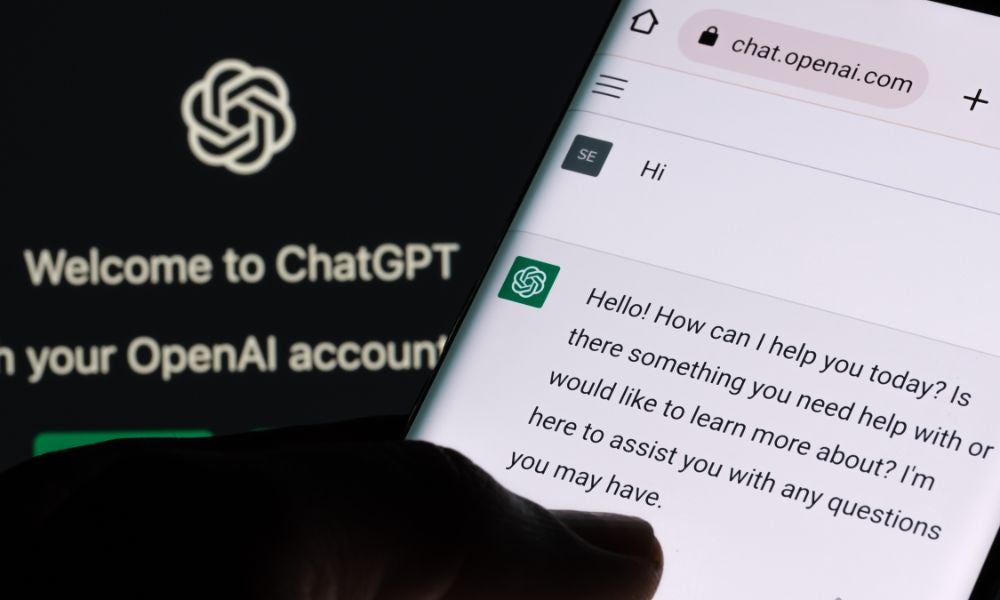AI-powered marketing: From the classroom to the boardroom
New research examines how generative AI is reshaping marketing practices, with insights for industry leaders looking to leverage AI technology for business benefit
In 2023, Coca-Cola leveraged generative AI to create a series of innovative marketing campaigns. One standout example was the Create Real Magic initiative, which invited fans to produce AI-generated artwork inspired by Coca-Cola's iconic brand elements. The campaign, hosted on a dedicated website, showcased how AI could be used to engage customers and generate fresh creative content.
The campaign utilised a custom AI model trained on Coca-Cola's brand imagery and history. Participants could input text prompts to generate unique artworks, which were then featured on the website and social media platforms. This approach exemplified key applications of GenAI in marketing, including:
- Content generation: The AI tool produced thousands of unique visual assets, demonstrating GenAI's capacity to create diverse marketing content at scale.
- Customer engagement: By involving consumers in the creative process, Coca-Cola fostered a deeper connection with its audience.
- Brand consistency: Despite the variety of outputs, the AI ensured all generated content remained true to Coca-Cola's brand identity, showcasing how GenAI can be trained to maintain brand guidelines.
The campaign also highlighted practical challenges in implementing GenAI marketing strategies. Coca-Cola had to carefully consider copyright issues related to AI-generated content and develop clear guidelines for content moderation. Furthermore, the success of the campaign demonstrated the potential for GenAI to drive viral marketing efforts. The novelty of AI-generated artwork sparked widespread social media sharing and press coverage, amplifying the campaign's reach.
Coca-Cola's innovative use of GenAI in this campaign serves as a practical example of how the technologies explored in the research are being applied in real-world marketing contexts. It underscores the potential for GenAI to transform creative processes, customer interactions, and brand management strategies in the marketing industry.
The rise of ChatGPT and other large language models
This type of AI-powered marketing is becoming increasingly common across industries. But how exactly are these new technologies changing marketing practices and education? A recent study by researchers from UNSW Business School, Pennsylvania State University and the University of North Carolina explored this question, providing insights into the impacts of generative AI (GenAI) on marketing and guidance on how to leverage these powerful new tools.

At the core of GenAI are large language models (LLMs) like ChatGPT, which can engage in human-like conversations and generate content across various formats. These models are trained on massive datasets of online text, allowing them to acquire broad knowledge that can be applied to marketing tasks, according to the research paper, Generative AI and Usage in Marketing Classroom, which was co-authored by Dr Songting Dong, Senior Lecturer in the School of Marketing at UNSW Business School together with Min Ding, Bard Professor of Marketing at Smeal College of Business at the Pennsylvania State University and Rajdeep Grewal, Townsend Family Distinguished Professor of Marketing at the Kenan-Flagler Business School, University of North Carolina.
Key applications of GenAI in marketing
The study identified five main ways GenAI tools can support marketing practice and education:
1. Information provision. GenAI excels at quickly retrieving and synthesising information on marketing concepts, trends, and best practices. For students and professionals alike, it can serve as an on-demand knowledge resource. "Having been trained on billions of documents, these models have transformed into vast reservoirs of information, making them invaluable assistants in the field of marketing," the researchers noted.
However, they cautioned that GenAI models may not have the most up-to-date information, especially on very recent events or niche topics. Combining GenAI with traditional search engines can help overcome this limitation.
Read more: James Cameron on how AI will impact creativity and innovation
2. Information extraction. GenAI tools can efficiently extract key facts and insights from large volumes of text, such as market reports, customer reviews, or academic literature. They can also discern more subtle information like customer sentiment.
The researchers explained: "In marketing practice, GenAI's ability to extract such embedded information can be incredibly useful for analysing consumer sentiment... However, the reliability of these models in discerning specific customer preferences about a product may vary. It largely depends on the extent of customer discourse about the product or similar products."
3. Content editing and generation. One of the most powerful applications of GenAI is in creating and refining marketing content. The tools can assist with tasks like:
- Editing and proofreading marketing copy
- Generating personalised messages for different customer segments
- Creating images and videos for marketing campaigns
- Developing marketing plans and strategies

While GenAI can produce high-quality content, the researchers emphasised the need for human oversight: "It is crucial to recognise that GenAI-generated content is derived from an extensive analysis of existing online documents. Therefore, the creative output of these models often reflects accumulated knowledge rather than constituting original thought. Consequently, its application requires a cautious approach, bolstered by expert guidance and careful evaluation."
4. Simulation and role-playing. GenAI models can simulate consumer responses to marketing stimuli or role-play as different stakeholders to provide diverse perspectives on marketing plans. This capability is valuable for both market research and student training. The study authors noted: "In educational contexts, GenAI has the potential to simulate interview scenarios for students by adopting the roles of various company executives, providing students with a realistic experience of navigating job interviews in the marketing field."
However, they cautioned that GenAI simulations should be viewed as approximations rather than perfect replicas of human behaviour.
5. Data analysis. GenAI tools can assist with various aspects of marketing data analysis, including: data cleaning and processing; descriptive statistics and simple analyses; some machine learning and data mining tasks; and data visualisation.
The researchers found that GenAI performs well on routine analytical tasks but struggles with more complex statistical reasoning: "GenAI tools possess limitations, especially in classical statistical tasks demanding a deep level of reasoning and critical analysis. While they can assist with coding aspects of tasks like regression, cluster analysis, and multi-dimensional scaling, it is crucial to recognise the risks of inaccurate interpretations and confabulations."
Read more: Ethical marketing: how to navigate the AI moral minefield for marketers
Implications for marketing education
The advent of GenAI presents both opportunities and challenges for marketing educators. On one hand, these tools can enhance the learning experience by providing personalised tutoring, generating practice examples, and automating administrative tasks.
The researchers highlighted how GenAI could improve course content: "GenAI tools adeptly create personalised examples, provide thorough explanations, generate low-stakes testing materials, and construct detailed syllabi. This capability to customise educational content not only enhances the relevance of the material to individual learning paths but also aligns closely with the dynamic nature of marketing concepts and practices."
However, easy access to powerful AI writing tools also raises concerns about academic integrity. Educators may need to rethink traditional assignments and assessment methods to ensure students are truly developing critical marketing skills rather than over-relying on AI.

Key takeaways for industry practitioners
For marketing professionals looking to leverage GenAI in their work, the research highlighted several important considerations:
- Start with low-risk applications: Begin by using GenAI for tasks like content editing or information retrieval, where the stakes are lower and it's easier to verify outputs.
- Develop AI literacy: Invest in training to understand how GenAI tools work, their capabilities, and their limitations. This knowledge is crucial for effective implementation.
- Establish clear workflows: Create processes for integrating GenAI into existing marketing workflows, including steps for human review and quality control.
- Experiment and iterate: GenAI capabilities are evolving rapidly. Regularly test new tools and approaches to find what works best for your specific marketing needs.
- Focus on augmentation, not replacement: View GenAI as a tool to enhance human creativity and productivity, not as a substitute for skilled marketing professionals.
- Consider customisation: For organisations with specific needs, exploring custom GenAI models trained on proprietary data may yield more targeted results.
- Stay vigilant about ethics: Be aware of potential issues like bias in AI-generated content or the use of copyrighted material in training data. Develop guidelines for responsible AI use in marketing.
Subscribe to BusinessThink for the latest research, analysis and insights from UNSW Business School
"Embracing GenAI in marketing practice and education is not merely beneficial – it is essential in the contemporary digital era. By doing so, we can harness the power of AI to create more effective, personalised, and dynamic marketing strategies and educational experiences, paving the way for a more innovative and efficient future in the marketing domain,” the researchers concluded.
As GenAI tools continue to evolve, they are poised to dramatically reshape how marketing is practised and taught. While challenges remain, organisations and educators who thoughtfully adopt these technologies stand to gain significant advantages in the coming years. The key lies in striking a balance between leveraging AI's capabilities and maintaining the human touch that is central to effective marketing.
